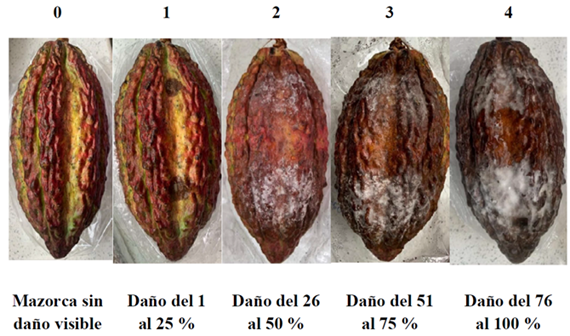Rhizospheric Actinomycetes with Antagonistic Activity to the Black Cocoa Pod (Phytophthora palmivora)
DOI:
https://doi.org/10.28940/terralatinoamericana.v43i.2196Keywords:
biocontroller, plant pathogens, soil microorganismsAbstract
Cocoa black pod disease (Phytophthora palmivora) poses a threat due to the drastic reduction in crop yield and the loss of quality in cocoa beans in Ecuador. An alternative to combat this pathogen could be the use of actinomycetes, which possess characteristics and metabolites that inhibit the growth of plant pathogens. The objective of this study was to identify rhizospheric actinomycetes with antagonistic activity against P. palmivora. Actinomycetes were isolated from soil samples of cacao crops. Five strains were characterized morphologically and biochemically. In vitro (dual culture assays) and in situ (on cacao pods) tests were carried out with the actinomycete strains and their metabolites. Dif ferences were found in the in vitro antagonistic ef fect of the actinomycete strains against P. palmivora. Strain ES3 obtained an inhibition percentage of 74%, followed by strains GC and GC2 with values of 64%. For the in vitro antagonistic ef fect of the actinomycete metabolites on P. palmivora, a dif ference was observed, with GC2 showing the highest inhibition (63%). Likewise, the severity percentage was reduced by up to 55% with strain GC2. The results indicate that actinomycetes have potential as a biocontrol agent for P. palmivora, particularly strain GC2, which showed the best results for in vitro and in situ inhibition of the phytopathogen.
Downloads
Publication Facts
Reviewer profiles N/A
Author statements
- Academic society
- Terra Latinoamericana
- Publisher
- Mexican Society of Soil Science, C.A.

















